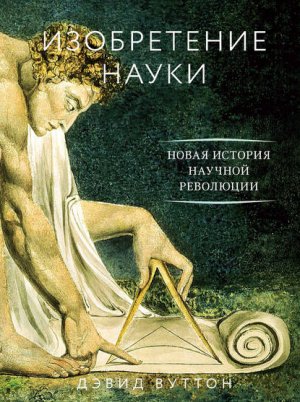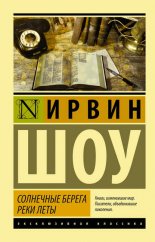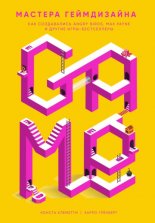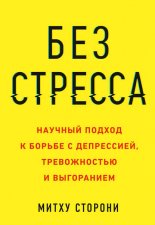╚šţßň˛ňÝŔň ÝÓˇŕŔ. ═ţÔÓ Ŕ˝˛ţŔ ÝÓˇ¸ÝţÚ ňÔţŰ■÷ŔŔ ┬ˇ˛˛ţÝ ─řÔŔń

KubovyáM.áThe Psychology of Perspective and Renaissance Art. Cambridge: Cambridge University Press, 1986.
KuhnáT.áS.áThe Copernican Revolution: Planetary Astronomy in the Development of Western Thought. Cambridge, Mass.: Harvard University Press, 1957.
Idem. Dubbing and Redubbing: The Vulnerability of Rigid Designationá// Minnesota Studies in the Philosophy of Science 14 (1990). 298ľ318.
Idem. The Essential Tension: Selected Studies in Scientific Tradition and Change. Chicago: University of Chicago Press, 1977.
Idem. Historical Structure of Scientific Discoveryá// Science 136 (1962). 760ľ764.
Idem. Mathematical versus Experimental Traditions in the Development of Physical Scienceá// The Journal of Interdisciplinary History 7 (1976). 1ľ31.
Idem. The Principle of Acceleration: A Non-dialectical Theory of Progress: Commentá// Comparative Studies in Society and History 11 (1969). 426ľ430.
Idem. The Road since Structure: Philosophical Essays, 1970ľ1993, with An Autobiographical Interview. Ed. J.áConant, J.áHaugeland. Chicago: University of Chicago Press, 2000.
Idem. The Structure of Scientific Revolutions. Chicago: University of Chicago Press, 1962.
Idem. The Structure of Scientific Revolutions. Chicago: University of Chicago Press, 1970.
Idem. The Structure of Scientific Revolutions. Chicago: University of Chicago Press, 1996.
Idem. The Trouble with the Historical Philosophy of Science: Robert and Maurine Rothschild Distinguished Lecture, 19 November 1991. Cambridge, Mass.: Department of the History of Science, Harvard University, 1992.
Idem. What are Scientific Revolutions? [1987]á// The Road since Structure: Philosophical Essays, 1970ľ1993, with An Autobiographical Interview. Ed. J.áConant, J.áHaugeland. Chicago: University of Chicago Press, 2000. 13ľ32.
KuscháM.áAnnalisa Coliva on Wittgenstein and Epistemic Relativismá// Philosophia 41 (2013). 37ľ49.
Idem. Hackingĺs Historical Epistemology: A Critique of Styles of Reasoningá// Studies in History and Philosophy of Science Part A 41 (2010). 158ľ173.
KusukawaáS.áPicturing the Book of Nature: Image, Text and Argument in Sixteenth-century Human Anatomy and Medical Botany. Chicago: University of Chicago Press, 2011.
Idem. The Sources of Gessnerĺs Pictures for the Historia animaliumá// Annals of Science 67 (2010). 303ľ328.
KwaáC.áStyles of Knowing. Pittsburgh: University of Pittsburgh Press, 2011.
LabingeráJ.áA., CollinsáH. (eds.). The One Culture? A Conversation about Science. Chicago: University of Chicago Press, 2001.
La Botieá. de. De la servitude volontaire, ou Contrĺun. Ed. M.áC.áSmith. Geneva: Droz, 1987.
LairdáW.áR.áArchimedes among the Humanistsá// Isis 82 (1991). 629ľ638.
LakatosáI.áThe Methodology of Scientific Research Programmes. Cambridge: Cambridge University Press, 1978.
LambáD., EastonáS.áM.áMultiple Discovery. Amersham: Avebury, 1984.
La MettrieáJ.áO. de. La Mettrieĺs ĹLĺHomme machineĺ: A Study in the Origins of an Idea. Ed. A.áVartanian. Princeton: Princeton University Press, 1960.
LandesáD.áS.áWhy Europe and the West? Why Not China?á// Journal of Economic Perspectives 20 (2006). 3ľ22.
LangbeináJ.áH.áTorture and the Law of Proof: Europe and England in the Ancien Rgime. Chicago: University of Chicago Press, 1977.
LaqueuráT.áW.áMaking Sex: Body and Gender from the Greeks to Freud. Cambridge, Mass.: Harvard University Press, 1990.
LaskiáH.áJ.áThe Rise of European Liberalism: An Essay in Interpretation. L.: Allen & Unwin, 1936.
LaslettáP.áCommentaryá// Scientific Change. Ed. AC. Crombie. N. Y.: Basic Books, 1963. 861ľ865.
LathamáR.áE. (ed.). Dictionary of Medieval Latin from British Sources. L.: British Academy, 1975ľ.
LatouráB.áFor David Bloorů and beyond: A Reply to David Bloorĺs ĹAnti-Latourĺá//Studies in History and Philosophy of Science 30 (1999). 113ľ130.
Idem. The Force and the Reason of Experimentá// Experimental Inquiries. Ed. H.áE.áLegrand. Dordrecht: Kluwer, 1990. 49ľ80.
Idem. One More Turn after the Social Turn: Easing Science Studies into the Non-modern Worldá// The Social Dimensions of Science. Ed. E. McMullin. Notre Dame: Notre Dame University Press, 1992. 272ľ292.
Idem. On the Partial Existence of Existing and Non-existing Objectsá// Biographies of Scientific Objects. Ed. L.áJ.áDaston. Chicago: University of Chicago Press, 2000. 247ľ269.
Idem. Pandoraĺs Hope: Essays on the Reality of Science Studies. Cambridge, Mass.: Harvard University Press, 1999.
Idem. Visualisation and Cognition: Drawing Things Togetherá// Representation in Scientific Activity. Ed. M.áLynch, S.áWoolgar. Cambridge, Mass.: MIT Press, 1990. 19ľ68.
Idem. We Have Never been Modern. Cambridge, Mass.: Harvard University Press, 1993.
LattisáJ.áM.áBetween Copernicus and Galileo: Christoph Clavius and the Collapse of Ptolemaic Cosmology. Chicago: University of Chicago Press, 1994.
LaudanáL.áThe Clock Metaphor and Probabilism: The Impact of Descartes on English Methodological Thought, 1650ľ1665á// Annals of Science 22 (1966). 73ľ104.
Idem. A Confutation of Convergent Realismá// Philosophy of Science 48 (1981). 19ľ49.
Idem. Demystifying Underdeterminationá// Minnesota Studies in the Philosophy of Science 14 (1990). 267ľ297.
Idem. The Nature and Sources of Lockeĺs Views on Hypothesesá// Journal of the History of Ideas 28 (1967). 211ľ223.
Idem. The Pseudo-science of Science?á// Philosophy of the Social Sciences 11 (1981). 173ľ198.
LawáJ.áTechnology and Heterogeneous Engineering: The Case of Portuguese Expansioná// The Social Construction of Technological Systems. Ed. W.áE.áBijker, T.áHughes, T.áJ.áPinch. Cambridge, Mass.: MIT Press, 1987. 111ľ134.
Layton JráE.áT.áTechnology as Knowledgeá// Technology and Culture 15 (1974). 31ľ41.
LeavisáF.áR.áTwo Cultures? The Significance of C.áP.áSnow. Ed. S.áCollini. Cambridge: Cambridge University Press, 2013.
LeblancáV.áThe World Surveyed, or The Famous Voyages and Travailes of V.áLe Blanc, or White. L.: J.áStarkey, 1660.
Le ClercáD.áThe History of Physick, or an Account of the Rise and Progress of the Art and the Several Discoveries Therein from Age to Age. L.: D.áBrown, 1699.
LeeuwenáH.áG. van. The Problem of Certainty in English Thought, 1630ľ1690. The Hague: Martinus Nijhoff, 1963.
LefvreáW.áThe Limits of Pictures: Cognitive Functions of Images in Practical Mechanics, 1400ľ1600á// The Power of Images in Early Modern Science. Ed. W.áLefvre, J.áRenn, U.áSchoepflin. Basle: Birkhuser, 2003. 69ľ88.
LehouxáD.áTropes, Facts and Empiricismá// Perspectives on Science 11 (2003). 326ľ345.
Idem. What Did the Romans Know? An Inquiry into Science and World making. Chicago: University of Chicago Press, 2012.
LeibnizáG. W, HuygensáC., PapináD.áLeibnizens und Huygensĺ Briefwechsel mit Papin, nebst der Biographie Papins und einigen zugehrigen Briefen und Actenstcken. Ed. E.áGerland. Berlin: Akademie der Wissenschaften, 1881.
LennoxáJ.áG.áThe Disappearance of Aristotleĺs Biology: A Hellenistic Mysteryá// Aristotleĺs Philosophy of Biology: Studies in the Origins of Life Science. Cambridge: Cambridge University Press, 2001. 110ľ125.
Idem. William Harvey: Enigmatic Aristotelian of the Seventeenth Centuryá// Teleology in the Ancient World: The Dispensation of Nature. Ed. J.áRocca. Cambridge: Cambridge University Press, forthcoming.
Leonardo da Vinci. Trattato della pittura. Ed. G. de Rossi. Rome: Stamperia de Romanis, 1817.
Idem. Trattato della pittura (1651) = Trait de la peinture. Ed. A.áSconza. P.: Les Belles Lettres, 2012.
Idem. Treatise on Painting: Codex urbinas latinus 1270. Ed. A. P. McMahon. Princeton: Princeton University Press, 1956.
LeplináJ. (ed.). Scientific Realism. Berkeley: University of California Press, 1984.
LerneráM.áľ P.áLe Monde des sphres. 2ávols. P.: Les Belles Lettres, 1997.
LeroiáA.áM.áThe Lagoon: How Aristotle Invented Science. N.Y.: Viking, 2014.
LeroyáL.áDe la vicissitude ou varit des choses de lĺunivers. P.: P. LĺHuilier, 1575.
Idem. Of the Interchangeable Course or Variety of Things. L.: C.áYetsweirt, 1594.
LessingáK.áG.áGotthold Ephraim Lessings Leben, nebst seinem noch brigen litterarischen Nachlasse. 3ávols. Berlin: In der Vossischen Buchhandlung, 1793ľ1795.
LessiusáL.áRawleigh, His Ghost, or A Feigned Apparition of SyráW.áRawleigh, to a Friend of His, for the Translating into English, the Booke of L.áLessius. St Omer: [s.n.], 1631.
LesteráT.áThe Fourth Part of the World. L.: Profile, 2009.
LestringantáF. LĺAtelier du cosmographe, ou LĺImage du monde la Renaissance. P.: A.áMichel, 1991.
LeurechonáJ.áSelectae propositiones in tota sparsim mathematica pulcherrimae ad usum et exercitationem celebrium academiarum. Pont--Mousson: G.áBernardus, 1629.
LevensonáJ.áA. ĹJacopo deĺ Barbariá// Print Quarterly 25 (2008). 207ľ209.
LevineáJ.áM.áThe Battle of the Books: History and Literature in the Augustan Age. Ithaca, NY: Cornell University Press, 1991.
Idem. Between the Ancients and the Moderns: Baroque Culture in Restoration England. New Haven: Yale University Press, 1999.
Lvy-Bruhl L.áHow Natives Think. N. Y.: A.áA.áKnopf, 1925.
LewisáE.áWalter Charleton and Early Modern Eclecticismá// Journal of the History of Ideas 62 (2001). 651ľ664.
Lindberg DavidáC.áAlhazenĺs Theory of Vision and Its Reception in the Westá// Isis 58 (1967). 321ľ341.
Idem. The Beginnings of Western Science: The European Scientific Tradition in Philosophical, Religious and Institutional Context, 600 BC to AD1450. Chicago: University of Chicago Press, 1992.
LindbergáD.áC., NumbersáR.áL. (eds.). God and Nature: Historical Essays on the Encounter between Christianity and Science. Berkeley: University of California Press, 1986.
LindbergáD.áC., WestmanáR.áS. (eds.). Reappraisals of the Scientific Revolution. Cambridge: Cambridge University Press, 1990.
LineáF.áTractatus de corporum inseparabilitate; in quo experimenta de vacuo, tam Torricelliana, quam Magdeburgica, & Boyliana, examinantur. L.: T.áRoycroft, 1661.
LivingstoneáD.áN., WithersáC.áW. J. (eds.). Geography and Revolution. Chicago: University of Chicago Press, 2005.
LockeáJ.áAn Essay Concerning Humane Understanding. L.: T.áBasset, 1690.
LohneáJ.áA.áIsaac Newton: The Rise of a Scientist 1661ľ1671á// Notes and Records of the Royal Society of London (1965). 125ľ139.
LoLordo A.áPierre Gassendi and the Birth of Early Modern Philosophy. N. Y.: Cambridge University Press, 2007.
LongáP.áO.áInvention, Authorship,ĺIntellectual Propertyĺ and the Origin of Patentsáľ Notes toward a Conceptual Historyá// Technology and Culture 32 (1991). 846ľ884.
Idem. Openness, Secrecy, Authorship: Technical Arts and the Culture of Knowledge from Antiquity to the Renaissance. Baltimore: Johns Hopkins University Press, 2001.
Idem. Picturing the Machine: Francesco di Giorgio and Leonardo da Vinci in the 1490sá// Picturing Machines. Ed. W.áLefvre. Cambridge, Mass.: MIT Press, 2004. 117ľ141.
Idem. Power, Patronage and the Authorship of Ars: From Mechanical Know-how to Mechanical Knowledge in the Last Scribal Ageá// Isis 88 (1997). 1ľ41.
LoweráR.áRichard Lowerĺs Vindicatio: A Defence of the Experimental Method. Ed. K.áDewhurst. Oxford: Sandford, 1983./p>
LuriaáA.áR.áCognitive Development, Its Cultural and Social Foundations. Cambridge, Mass.: Harvard University Press, 1976.
LthyáC.áH.áWhere Logical Necessity Turns into Visual Persuasion: Descartesĺ Clear and Distinct Illustrationsá// Transmitting Knowledge: Words, Images and Instruments in Early Modern Europe. Ed. S.áKusukawa, I.áMaclean. Oxford: Oxford University Press, 2006. 97ľ133.
LynalláG.áSwift and Science. L.: Palgrave Macmillan, 2012.
LynesáJ.áA.áBrunelleschiĺs Perspectives Reconsideredá// Perception 9 (1980). 87ľ99.
LyotardáJ.áľ F.áLa Condition postmoderne: rapport sur le savoir. P.: ditions de Minuit, 1979.
MaasáH., MorganáM.áS.áTiming History: The Introduction of Graphical Analysis in 19th-century British Economicsá// Revue dĺhistoire des sciences humaines 7 (2002). 97ľ127.
McCord S.áL.áHealing by Proxy: The Early-modern Weapon-salveá// English Language Notes 47 (2009). 13ľ24.
McCormick T.áWilliam Petty and the Ambitions of Political Arithmetic. Oxford: Oxford University Press, 2009.
McDonald J.áF.áRussell, Wittgenstein, and the Problem of the Rhinocerosá// Southern Journal of Philosophy 31 (1993). 409ľ424.
MacfarlaneáA.áCivility and the Decline of Magicá// Civil Histories: Essays in Honour of Sir Keith Thomas. Ed. P.áSlack, P.áBurke, B.áHarrison. Oxford: Oxford University Press, 2000. 145ľ160.
MacGregor N.áShakespeareĺs Restless World. L.: Allen Lane, 2012.
McGrew T. J., Alspector-Kelly M., AllhoffáF. (eds.). The Philosophy of Science: An Historical Anthology. Chichester: WileyBlackwell, 2009.
McGuire J. E., RattansiáP.áM.áNewton and the ĹPipes of Panĺá// Notes and Records of the Royal Society of London 21 (1966). 108ľ143.
MachiavelliáN.áSelected Political Writings. Trans. D.áWootton. Indianapolis: Hackett, 1994.
McIntosh G.áC.áThe Johannes Ruysch and Martin Waldseemller World Maps: The Interplay and Merging of Early-sixteenth-century New World Cartographies. Cerritos, Calif.: Plus Ultra Publishing, 2012.
MacIntyre A.áC.áAfter Virtue: A Study in Moral Theory. L.: Duck-worth, 1981.
Idem. Epistemological Crises, Dramatic Narrative and the Philosophy of Science in Historicism and Epistemologyá// Monist 60 (1977). 453ľ472.
MacKay R. J., OldfordáR.áW.áScientific Method, Statistical Method and the Speed of Lightá// Statistical Science (2000). 254ľ278.
MackinnonáN.áThe Portrait of Fra Luca Pacioliá// The Mathematical Gazette 77 (1993). 130ľ219.
McLaughlin M.áL.áHumanist Concepts of Renaissance and Middle Ages in the Tre-and Quattrocentoá// Renaissance Studies 2 (1988). 131ľ142.
MacleanáI.áFoucaultĺs Renaissance Epistemeá// Journal of the History of Ideas 59 (1998). 149ľ166.
Idem. Logic, Signs and Nature in the Renaissance: The Case of Learned Medicine. Cambridge: Cambridge University Press, 2002.
McMullin E.áBruno and Copernicusá// Isis 78 (1987). 55ľ74.
Idem. Giordano Bruno at Oxfordá// Isis 77 (1986). 85ľ94.
Idem. The Impact of Newtonĺs Principia on the Philosophy of Scienceá// Philosophy of Science 68 (2001). 279ľ310.
McNally P. (ed.). The Advent of Printing. Montreal: McGill University, 1987.
McNulty R.áBruno at Oxfordá// Renaissance News 13 (1960). 300ľ305.
MaffioliáC.áS.áOut of Galileo: The Science of Waters 1628ľ1718. Rotterdam: Erasmus, 1994.
Idem. La via delle acque, 1500ľ1700: Appropriazione delle arti e trasformazione delle matematiche. Florence: L.áS.áOlschki, 2010.
MalcolmáN.áAspects of Hobbes. Oxford: Clarendon Press, 2002.
Idem. Hobbes and Robervalá// Aspects of Hobbes. Oxford: Clarendon Press, 2002. 156ľ199.
Idem. Hobbesĺs Science of Politics and His Theory of Scienceá// Aspects of Hobbes. Oxford: Clarendon Press, 2002. 146ľ155.
Idem. Robert Boyle, Georges Pierre des Clozets and the Asterism: A New Sourceá// Early Science and Medicine 9 (2004). 293ľ306.
ManettiáA.áVita di Filippo Brunelleschi. Ed. C.áC.áPerrone. Rome: Salerno, 1992.
MargolisáH.áPatterns, Thinking and Cognition: A Theory of Judgment. Chicago: University of Chicago Press, 1987.
Idem. It Started with Copernicus: How Turning the World inside out Led to the Scientific Revolution. N. Y.: McGraw-Hill, 2002.
MartensáR.áKeplerĺs Philosophy and the New Astronomy. Princeton: Princeton University Press, 2000.
MartinetáM.áScience et hypothses chez Descartesá// Archives internationales dĺhistoire des sciences 24 (1974). 319ľ339.
MassaáD.áGiordano Brunoĺs Ideas in Seventeenth-century Englandá// Journal of the History of Ideas 38 (1977). 227ľ242.
MasseyáL.áPicturing Space, Displacing Bodies. University Park, PA: Pennsylvania State University Press, 2007.
MatternáS.áP.áGalen and the Rhetoric of Healing. Baltimore: Johns Hopkins University Press, 2008.
MayáC.áThe Venetian Moment: New Technologies, Legal Innovation and the Institutional Origins of Intellectual Propertyá// Prometheus 20 (2002). 159ľ179.
MayeráA.áľ K.áSetting Up a Discipline: Conflicting Agendas of the Cambridge History of Science Committee, 1936ľ1950á// Studies in History and Philosophy of Science Part A 31 (2000). 665ľ689.
MayeráT.áF.áThe Roman Inquisition: A Papal Bureaucracy and Its Laws in the Age of Galileo. Philadelphia: University of Pennsylvania Press, 2013.
Idem. The Roman Inquisition: Trying Galileo. Philadelphia: University of Pennsylvania Press, 2015.
MayráE.áWhen is Historiography Whiggish?á// Journal of the History of Ideas 51 (1990). 301ľ309.
MayráO.áAuthority, Liberty & Automatic Machinery in Early Modern Europe. Baltimore: Johns Hopkins University Press, 1986.
MazuráJ.áEnlightening Symbols: A Short History of Mathematical Notation and Its Hidden Powers. Princeton: Princeton University Press, 2014.
Mela P.áDe orbis situ libri tres. Adiecta sunt praeterea loca aliquot ex Vadiani commentarijs. Ed. J.áVadianus. P.: C.áWechel, 1530.
Melchior-Bonnet S.áThe Mirror: A History. N. Y.: Routledge, 2002.
MerchantáC. ĹThe Violence of Impedimentsĺ: Francis Bacon and the Origins of Experimentationá// Isis 99 (2008). 731ľ760.
MertonáR.áK.áThe Normative Structure of Scienceá// The Sociology of Science. Chicago: University of Chicago Press, 1973. 267ľ278.
Idem. On the Shoulders of Giants: A Shandean Postcript. N. Y.: Free Press, 1965.
Idem. Priorities in Scientific Discovery: A Chapter in the Sociology of Scienceá// American Sociological Review 22 (1957). 635ľ659.
Idem. Resistance to the Systematic Study of Multiple Discoveries in Scienceá// European Journal of Sociology 4 (1963). 237ľ282.
Idem. Science and Technology in a Democratic Orderá// Journal of Legal and Political Sociology 1 (1942). 115ľ126.
Idem. Science, Technology and Society in Seventeenth-century Englandá// Osiris 4 (1938). 360ľ363.
Idem. Science, Technology and Society in Seventeenth-century England. N. Y.: Harper & Row, 1970.
Idem. Singletons and Multiples in Scientific Discovery: A Chapter in the Sociology of Scienceá// Proceedings of the American Philosophical Society 105 (1961). 470ľ486.
Idem. The Sociology of Science: Theoretical and Empirical Investigations. Chicago: University of Chicago Press, 1973.
Idem. The Unanticipated Consequences of Purposive Social Actioná// American Sociological Review 1 (1936). 894ľ904.
MertonáR.áK., BarberáE.áG.áThe Travels and Adventures of Serendipity. Princeton: Princeton University Press, 2006.
MeureráP.áH.áCartography in the German Lands 1450ľ1650á// The History of Cartography. 6ávols. Vol. 3: Cartography in the European Renaissance. Ed. D.áWoodward. Chicago: University of Chicago Press, 2007. 1172ľ1245.
MicheleáA.áTrattato della grandezza dellĺacqva et della terra. Venice: N.áMoretti, 1583.
MiddletonáW.áE.áK.áThe History of the Barometer. Baltimore: Johns Hopkins University Press, 1964.
MidgleyáR. A New Treatise of Natural Philosophy. L.: J.áHindmarsh, 1687.
MignoloáW.áD.áThe Darker Side of the Renaissance: Literacy, Territoriality and Colonization. Ann Arbor: University of Michigan Press, 2010.
MilláJ.áS.áPrinciples of Political Economy. L.: Longmans, Green & Co., 1909.
MilleráD.áP.áJames Watt, Chemist: Understanding the Origins of the Steam Age. L.: Pickering & Chatto Ltd, 2009.
Milliet de ChalesáC.áľ F.áCursus seu mundus mathematicus. 3ávols. Lyons, 1674.
Idem. Cursus seu mundus mathematicus. 4ávols. Lyons, 1690.
MiltonáJ.áR.áLaws of Natureá// The Cambridge History of Seventeenth-century Philosophy. 2ávols. Vol. 1. Ed. D.áGarber, M.áAyers. Cambridge: Cambridge University Press, 1998. 680ľ701.
Idem. The Origin and Development of the Concept of the ĹLaws of Natureĺá// European Journal of Sociology 22 (1981). 173ľ195.
MinnisáA.áJ.áMedieval Theory of Authorship: Scholastic Literary Attitudes in the Later Middle Ages. Aldershot: Wildwood House, 1988.
MirowskiáP. A Visible Hand in the Marketplace of Ideas: Precision Measurement as Arbitrageá// Science in Context 7 (1994). 563ľ590.
MizauldáA.áCosmologia: Historiam coeli et mundi. P.: F.áMorellus, 1570.
MoffittáJ.áF.áPainterly Perspective and Piety: Religious Uses of the Vanishing Point, From the 15th to the 18th Century. Jefferson, NC: McFarland, 2008.
MokyráJ.áThe Enlightened Economy: An Economic History of Britain, 1700ľ1850. New Haven: Yale University Press, 2009.
Idem. The Gifts of Athena: Historical Origins of the Knowledge Economy. Princeton: Princeton University Press, 2004.
Idem. The Intellectual Origins of Modern Economic Growthá// Journal of Economic History 65 (2005). 285ľ351.
Idem. The Lever of Riches: Technological Creativity and Economic Progress. N. Y.: Oxford University Press, 1990.
MontaigneáM. de. The Complete Essays. Trans. M.áA.áScreech. L.: Allen Lane, 1991.
Idem. Essayes: Written in French. Trans. J.áFlorio. L.: E.áBlovnt, 1613.
Idem. uvres compltes. Ed. M.áRat. P.: Gallimard, 1962.
MooreáG.áE. A Defence of Common Sense. L.: Allen & Unwin, 1925.
MorandoáB.áThe Golden Age of Celestial Mechanicsá// The General History of Astronomy. 4ávols. Vol. 2B: Planetary Astronomy from the Renaissance to the Rise of Astrophysics. Ed. R.áTaton, C.áWilson. 1995. 211ľ239.
MoreáH.áDivine Dialogues, Containing Sundry Disquisitions and Instructions Concerning the Attributes and Providence of God. L.: J.áFlesher, 1668.
Idem. The Immortality of the Soul, So Farre Forth as It is Demonstrable from the Knowledge of Nature and the Light of Reason. L.: W.áMorden, 1659.
MorisonáS.áE.áPortuguese Voyages to America in the Fifteenth Century. Cambridge, Mass.: Harvard University Press, 1940.
MornetáD.áLes Origines intellectuelles de la Rvolution franaise: 1715ľ1787. P.: Armand Colin, 1933.
MosleyáA.áBearing the Heavens: Tycho Brahe and the Astronomical Community of the Late Sixteenth Century. Cambridge: Cambridge University Press, 2007.
MuiráE.áThe Culture Wars of the Late Renaissance. Boston: Harvard University Press, 2007.
MuraroáL.áGiambattista della Porta, mago e scienziato. Milan: Feltrinelli, 1978.
MurdocháJ.áE.áPhilosophy and the Enterprise of Science in the Later Middle Agesá// The Interaction between Science and Philosophy. Ed. Y.áElkana. Atlantic Highlands, NJ: Humanities Press, 1974. 51ľ74.
Idem. Pierre Duhem and the History of Late-Medieval Science and Philosophy in the Latin Westá// Gli studi di filosofia medievale fra otto e novecento. Ed. A.áMaier, R.áImbach. Rome: Edizioni di Storia e Letteratura, 1991. 253ľ302.
MussonáA.áE., RobinsonáE.áScience and Technology in the Industrial Revolution. Manchester: Manchester University Press, 1969.
MnsteráS. A Treatyse of the Newe India with Other New Founde Landes and Islandes. L.: E.áSutton, 1553.
NageláT.áWhat is It Like to be a Bat?á// The Philosophical Review 83 (1974). 435ľ450.
NaudáG.áInstructions Concerning Erecting of a Library Presented to My Lord, the President de Mesme. Trans. J.áEvelyn. L.: G.áBedle, 1661.
NeedhamáJ.áHuman Laws and Laws of Nature in China and the West (I)á// Journal of the History of Ideas 12 (1951). 3ľ30.
Idem. Human Laws and Laws of Nature in China and the West (II)á// Journal of the History of Ideas 12 (1951). 194ľ230.
Idem. The Sceptical Biologist (Ten Essays). L.: Chatto & Windus, 1929.
Idem. The Shorter Science and Civilisation in China: An Abridgement. Ed. C.áA.áRowan. 5ávols. Cambridge: Cambridge University Press, 1978ľ1995.
NewcastleáM.áC.áPhilosophical Letters, or Modest Reflections upon Some Opinions in Natural Philosophy. L.: [s.n.], 1664.
NewmanáW.áR.áAtoms and Alchemy: Chymistry and the Experimental Origins of the Scientific Revolution. Chicago: University of Chicago Press, 2006.
Idem. Brian Vickers on Alchemy and the Occult: A Responseá// Perspectives on Science 17 (2009). 482ľ506.
Idem. Gehennical Fire. Chicago: University of Chicago Press, 2003.
Idem. How Not to Integrate the History and Philosophy of Science: A Reply to Chalmersá// Studies in History and Philosophy of Science Part A 41 (2010). 203ľ213.
Idem. Promethean Ambitions: Alchemy and the Quest to Perfect Nature. Chicago: University of Chicago Press, 2004.
Idem. What Have We Learned from the Recent Historiography of Alchemy?á// Isis 102 (2011). 313ľ321.
NewmanáW.áR., PrincipeáL.áM.áAlchemy Tried in the Fire. Chicago: University of Chicago Press, 2005.
Idem. Alchemy versus Chemistry: The Etymological Origins of a Historiographic Mistakeá// Early Science and Medicine 3 (1998). 32ľ65.
NewtonáI.áThe Correspondence of Isaac Newton. Ed. H.áW.áTurnbull. 7ávols. Cambridge: Cambridge University Press, 1959ľ1977.
Idem. Isaac Newtonĺs Papers & Letters on Natural Philosophy and Related Documents. Ed. I.áB.áCohen. Cambridge, Mass.: Harvard University Press, 1958.






